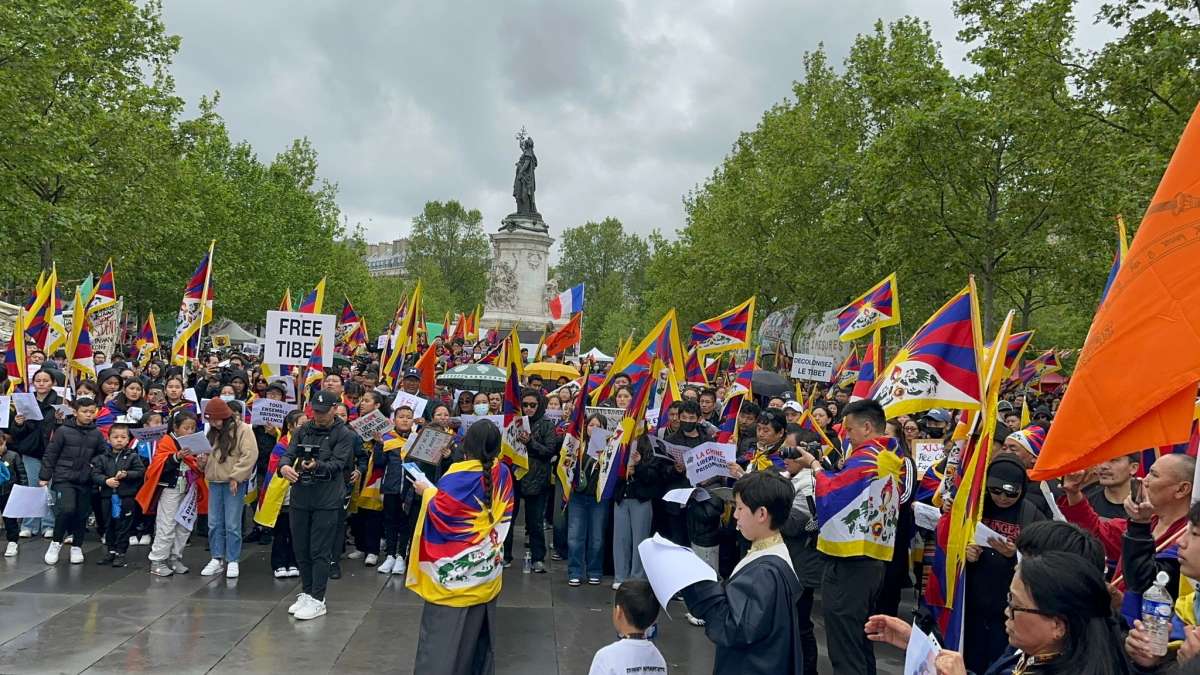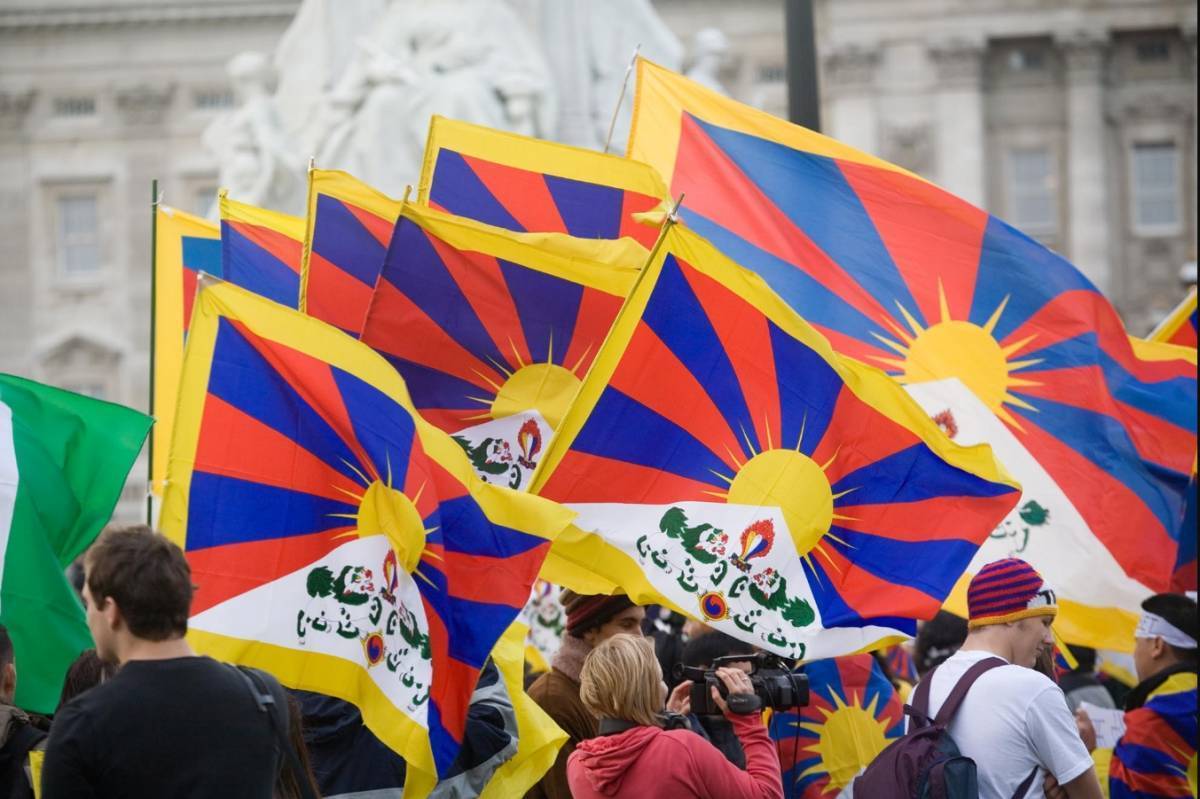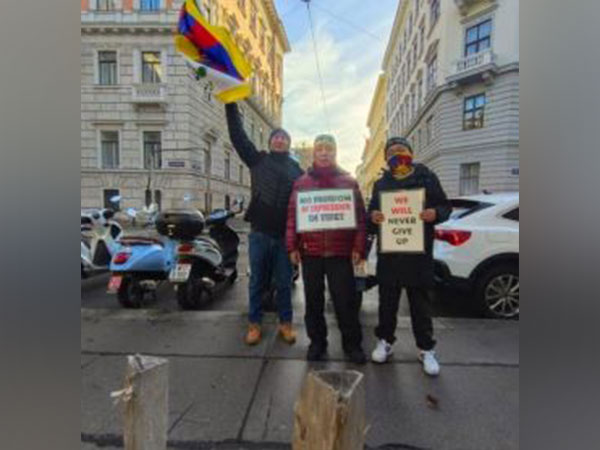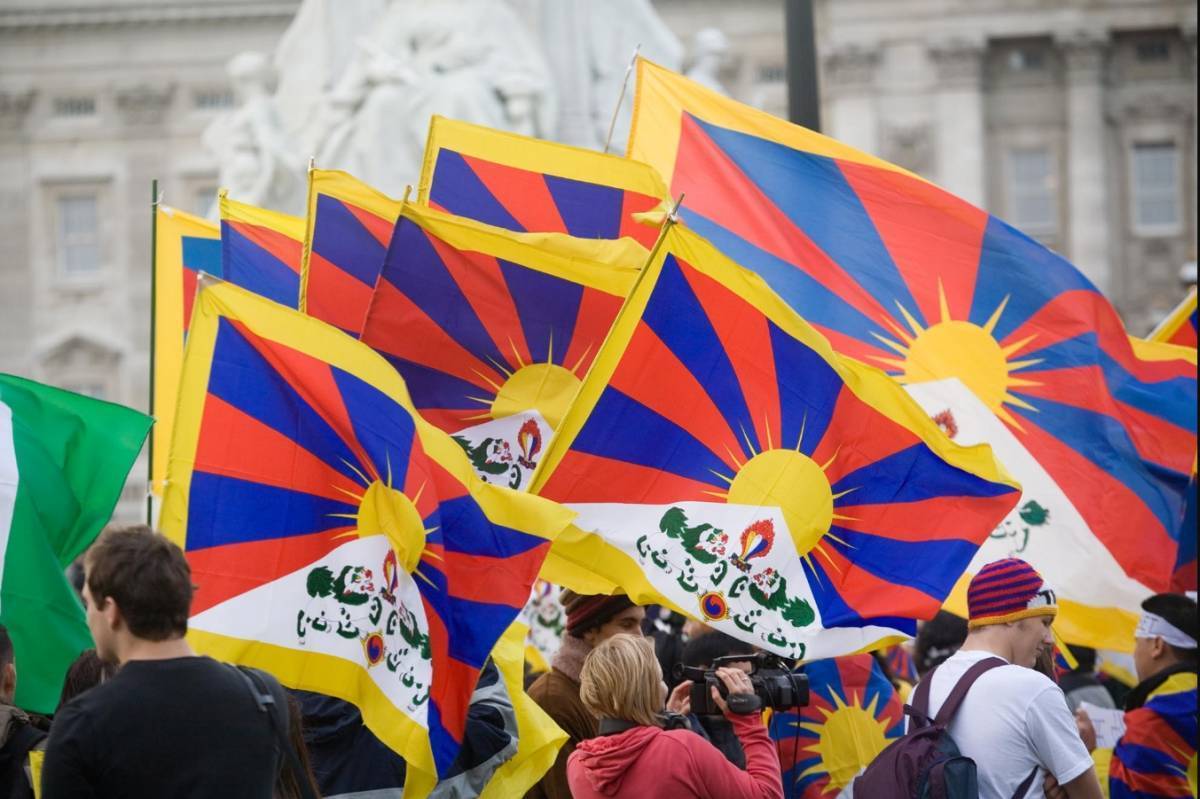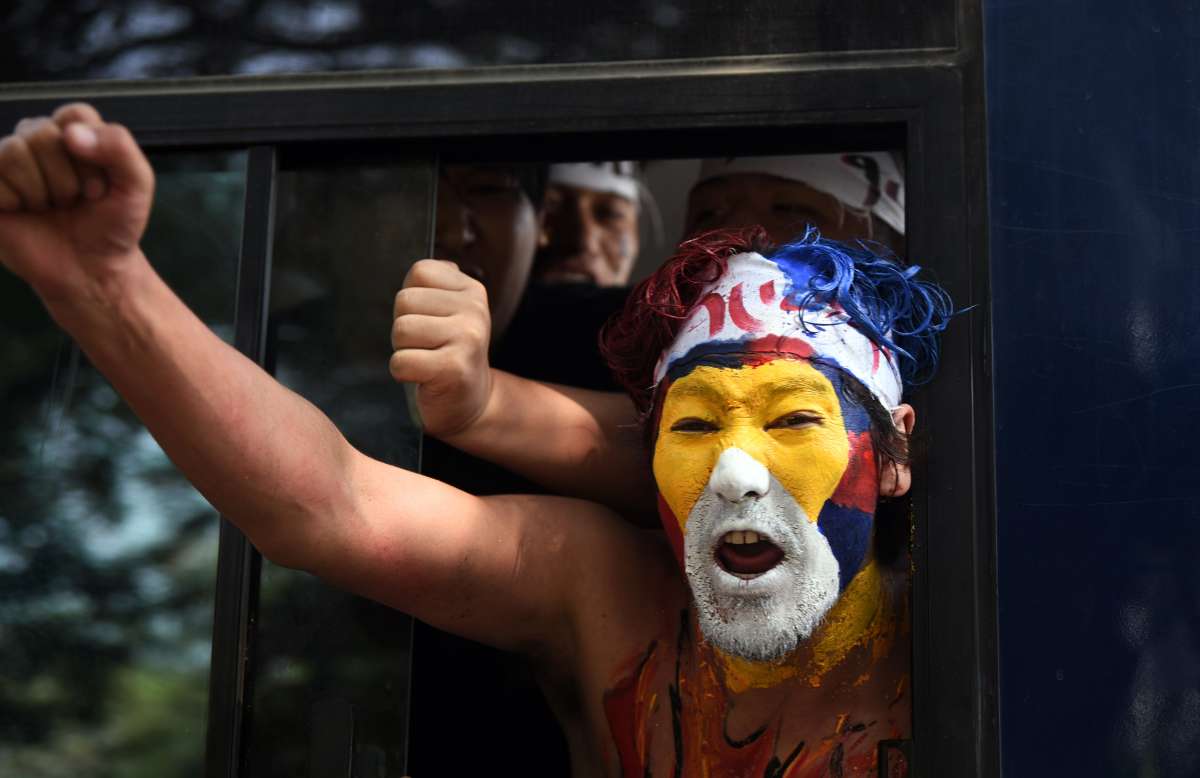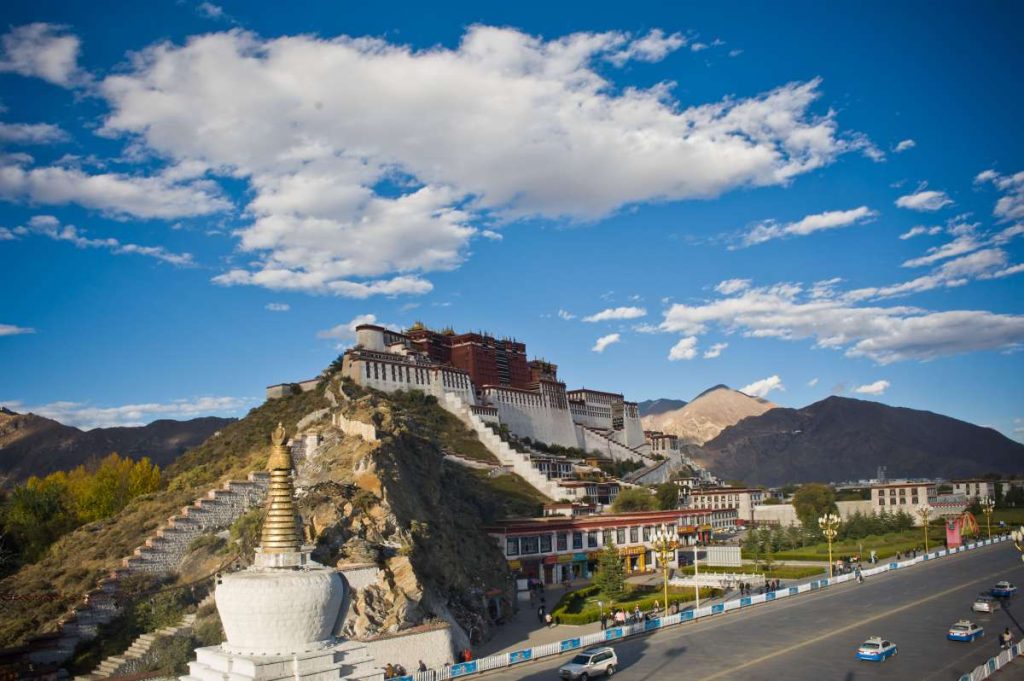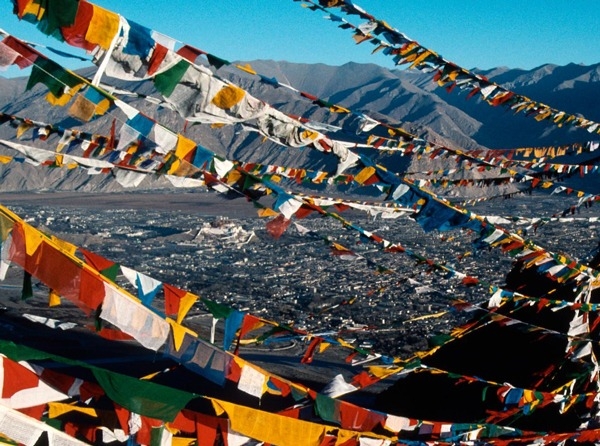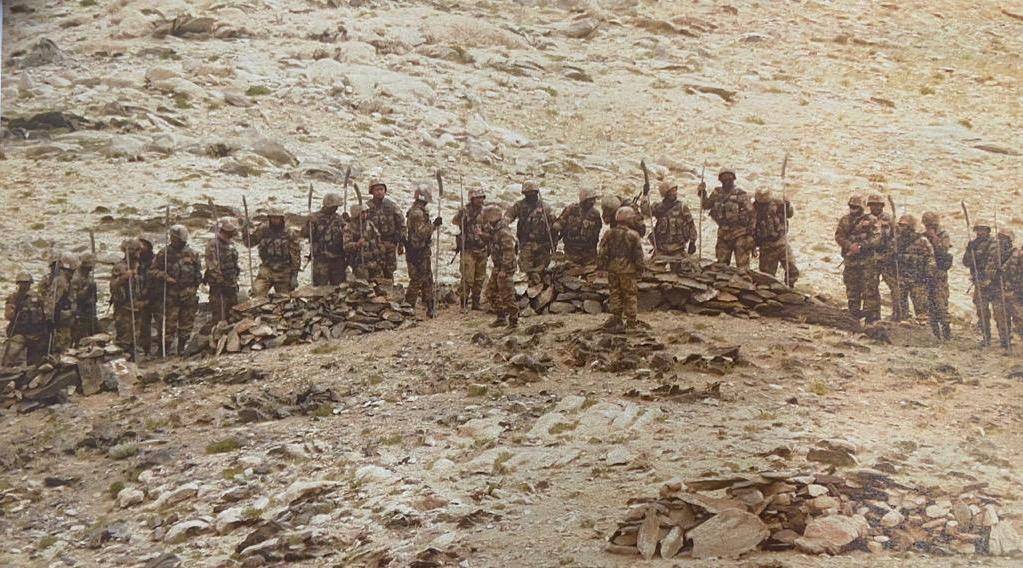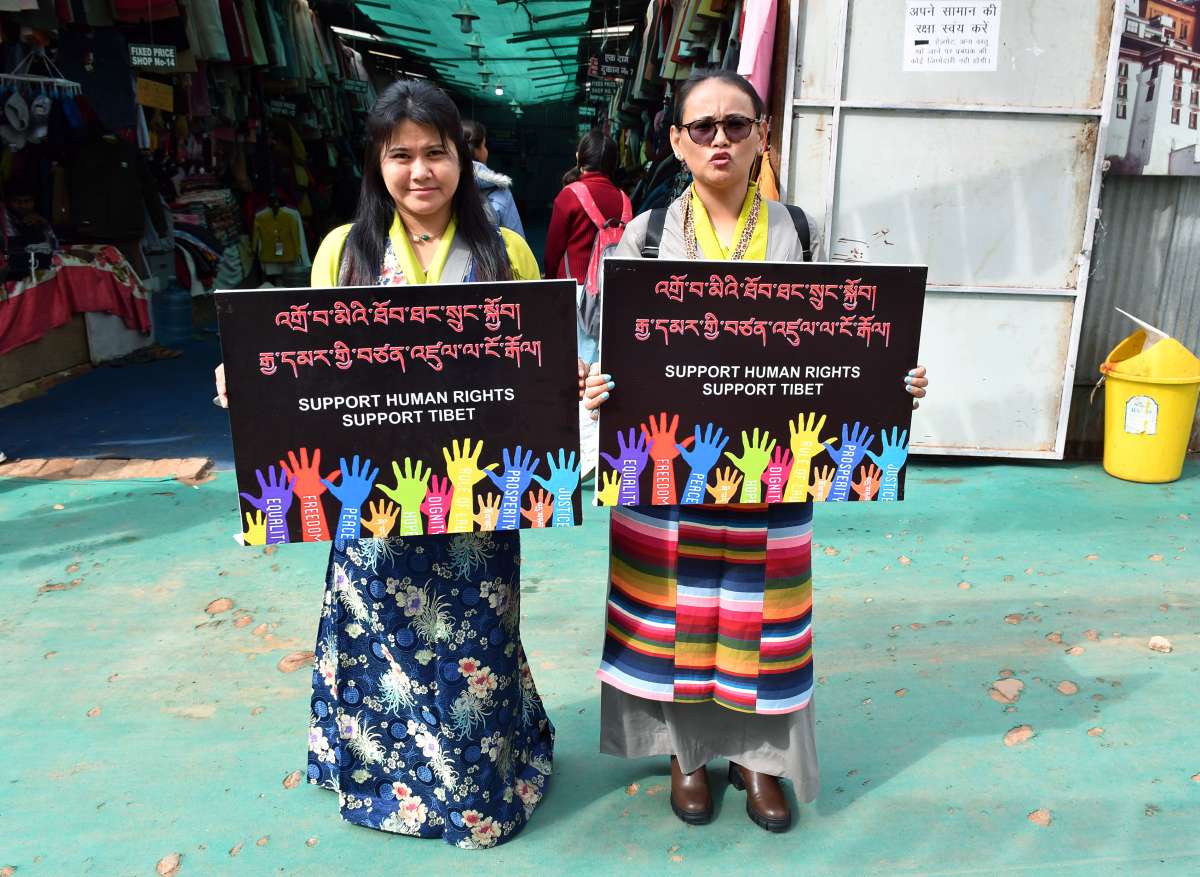Activists advocating for Tibet and Xinjiang, regions where the United Nations has raised concerns about potential crimes against humanity, were also present on the streets of the capital….reports Asian Lite News
Chinese President Xi Jinping’s arrival in France, Paris on Sunday witnessed a display of activism as campaigners for Tibet and Xinjiang gathered to highlight concerns over human rights abuses in these regions.
Chinese President Xi Jinping is on his first journey to Europe in half a decade, with the visit expected to revolve around Russia’s war in Ukraine and economic tensions between Beijing and Brussels. His itinerary commences in France, where he is scheduled to engage in discussions with French President Emmanuel Macron and European Commission President Ursula von der Leyen on Monday in Paris, before proceeding to the Pyrenees region, Al Jazeera reported.
Following his time in France, Xi will journey to Serbia and Hungary, nations that have preserved strong connections with Russia despite its extensive invasion of Ukraine in February 2022.
Chinese state media reported on Xi’s arrival in Paris, depicting streets adorned with both Chinese and French flags and groups of Chinese nationals welcoming their president. However, amidst the festive atmosphere, campaigners for Tibet and Xinjiang, where the United Nations has raised concerns about potential crimes against humanity, also took to the streets of the capital.
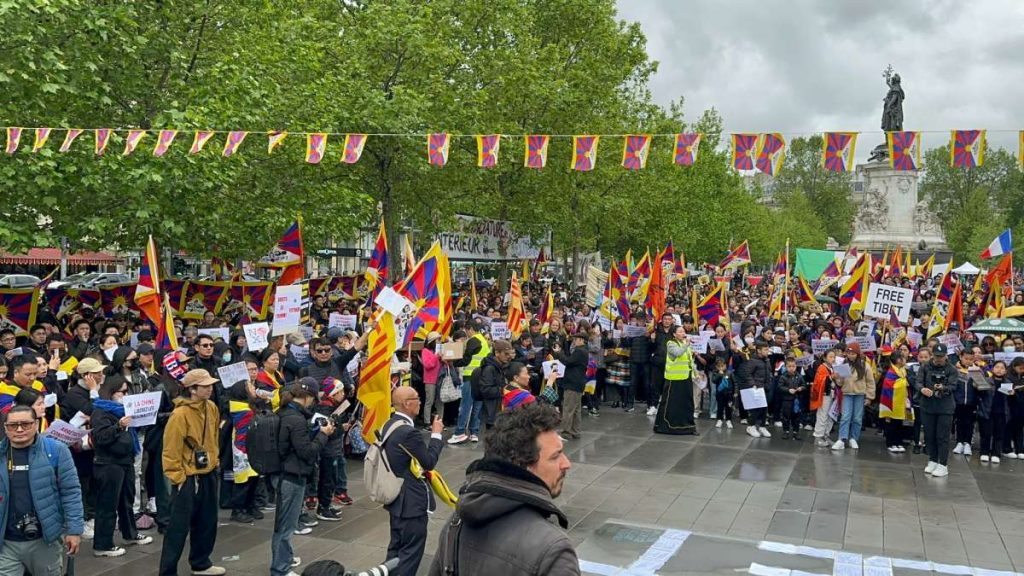
Activists advocating for Tibet and Xinjiang, regions where the United Nations has raised concerns about potential crimes against humanity, were also present on the streets of the capital.
The European Union’s imposition of targeted sanctions on certain Chinese officials and companies over the situation in Xinjiang in March 2021 elicited strong reactions from Beijing.
Human Rights Watch urged French President Macron to publicly address these issues during Xi’s visit to Paris, calling for the release of individuals arbitrarily detained, including Ilham Tohti, an Uyghur economist and recipient of the Sakharov Prize.
The organisation emphasised that Macron should also raise concerns about Tibet and Hong Kong, highlighting the repression faced by Tibetan children in boarding schools and the erosion of freedoms in Hong Kong due to draconian security laws.
“President Macron should make it clear to Xi Jinping that Beijing’s crimes against humanity come with consequences for China’s relations with France,” Maya Wang, the acting China director at Human Rights Watch said in a statement. “France’s silence and inaction on human rights would only embolden the Chinese government’s sense of impunity for its abuses, further fuelling repression at home and abroad.”
In a meeting at the Elysee Palace on April 30, Macron was pictured with Penpa Tsering, the president of the Tibetan government-in-exile, who urged him not to forget Tibet. The agenda between the two presidents was expected to address various international crises, but advocates stressed the importance of including discussions on human rights issues.
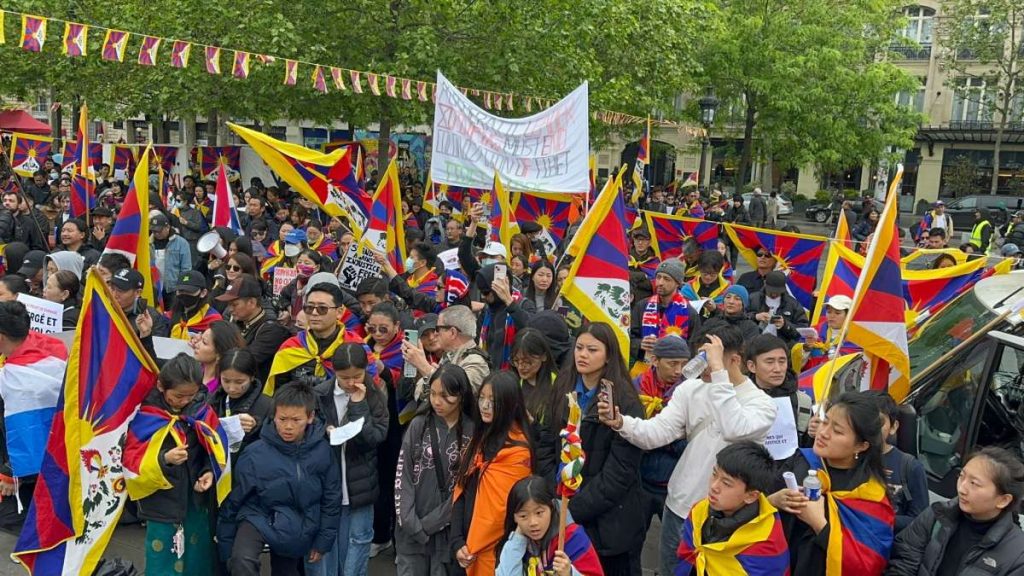
“We understand that the agenda between the two presidents will be dense given the many international crises such as in Ukraine and in the Middle East, but this must not be done at the expense of exchanges on human rights, which are in a deplorable state throughout the country as well as in Hong Kong, Xinjiang and Tibet, where a latent conflict has been going on for over 60 years and poses a threat to regional and international security,” Vincent Metten, the EU policy director for the International Campaign for Tibet said in a statement, as reported by Al Jazeera.
Freedom House’s 2024 report on Freedom in the World revealed Tibet’s dismal score of zero out of 100, indicating a severe decline in freedoms over the past eight years.
Maryse Artiguelong, the vice president of the International Federation for Human Rights (FIDH), said: “The conflict in Ukraine highlights the threat posed to international order and security by authoritarian regimes such as Russia and the People’s Republic of China. Their aggressive foreign policies and repressive domestic policies are inextricably linked: Anyone who does not oppose China’s human rights violations risks one day facing its aggressive foreign policy.”
France has emphasized that the conflicts in Ukraine and other regions, including Beijing’s neutral stance on Ukraine but failure to condemn Moscow’s invasion, will be significant topics of discussion during the talks, Al Jazeera reported.
Macron, known for his assertive stance on European security, will urge Xi to exert influence on Russian President Putin regarding the situation in Ukraine.
To underscore European unity, von der Leyen will participate in Monday’s discussions, scheduled to commence shortly after 11 am (09:00 GMT). Besides the Ukraine conflict, Europe is troubled by Chinese commercial activities, prompting an inquiry into China’s subsidies for electric vehicle makers amid worries about unfair competition and adverse effects on European firms.
Prior to Xi’s departure last week, Lin Jian, a spokesperson for China’s Ministry of Foreign Affairs, said that Beijing was ready to “work with France and the EU to take this meeting as an opportunity to make the China-EU relations more strategic, stable, constructive and mutually beneficial, promote steady and sustained progress in China-EU relations, and contribute to the prosperity of both China and Europe and a peaceful world.”
Following his visit to France, Xi will travel to Serbia, arriving in Belgrade on the 25th anniversary of the bombing of the Chinese Embassy. He will engage in discussions with President Aleksandar Vucic. The bombing occurred during the NATO air campaign against Serb forces in Kosovo, resulting in three casualties and sparking outrage in China.
Despite not being an EU member, Serbia has attracted substantial investment from China, which is now its largest single source of investment. Ahead of the trip, Lin, the MOFA spokesperson, described the relationship between the two countries as “ironclad,” according to Al Jazeera.
“The bombing remains a significant topic for Chinese officials, who use it to support narratives that question the values of liberal democracies,” Stefan Vladisavljev, programme director at Foundation BFPE for a Responsible Society wrote in an online analysis, adding, “For Serbia, the visit presents an opportunity to strengthen its position as China’s main partner in the Western Balkans.”
Xi will proceed to Budapest on May 8, marking the conclusion of his Europe trip. There, he will hold talks with Hungarian President Viktor Orban, known for his close ties with Russia within the EU.
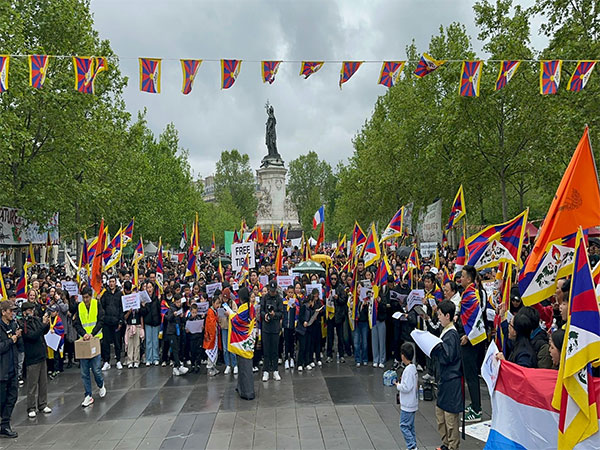
Hungary’s policies, which have drawn concern from other EU members, have seen the country aligning more closely with Beijing and Moscow. Recently, Hungary signed a security cooperation agreement with China permitting Chinese police officers to operate in areas with significant ethnic Chinese populations or popular Chinese tourist destinations. This move has sparked apprehension, particularly among exiles and dissidents elsewhere in Europe.
Additionally, Hungary is a member in China’s Belt and Road Initiative since 2015. Discussions between Xi and Orban are expected to cover topics such as the ongoing construction of a high-speed rail link between Budapest and Belgrade, Al Jazeera reported. (ANI)
ALSO READ: China among most dangerous countries for media professionals
ALSO READ: Pakistan, Iran, China Plan Trilateral Defence Talks

